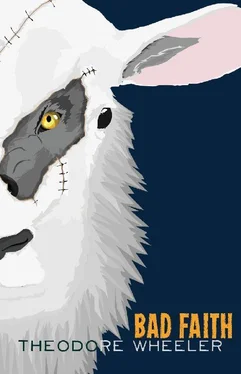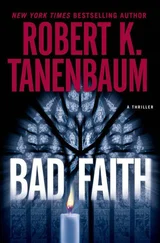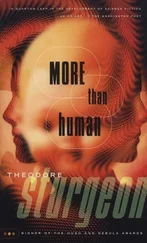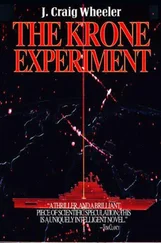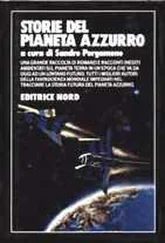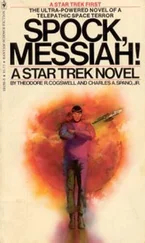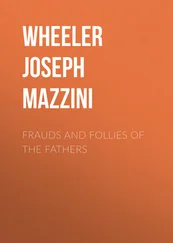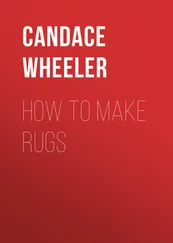The kid’s a guard, Worthy told him, leaning out of the Subaru. A friendly. Gas stations have guards. The guard says, Go piss.
Steve heard Worthy and Anja and the guard laughing as he stepped into the yellowing grass at the edge of the ravine. He pissed and had no problem pissing. Let them watch. Let them laugh. He was going home.
Elisabeth Hindmarsh lived on the second floor of a partitioned Victorian in Lincoln. There was an inside stairway to get to her door. Aaron walked in off the street, late at night, but she didn’t care. It was after a party and he was going to help her finish the gin.
It was a tiny place. A living room, a kitchenette, a bathroom with black and white checkerboard tile. Red paper lanterns hung on wires sheathed in cloth insulators. Elisabeth was thick-bodied, athletic, her hair dyed a bluish shade of black. She wore a dress over jeans to hide her porcine legs. Aaron dressed like Charles Starkweather, those days when he wandered student neighborhoods, a plain tee shirt tight over his weakling chest, blue jeans fitting loose on his skinny hips. He hoped his wispy mustache and brown felt hat made him look like the singer of a band.
Elisabeth was in the bathroom. Aaron talked to her from the adjacent room anyway, reciting the records in her collection that he approved of. Pet Sounds and John Wesley Harding and Once Upon a Rhyme . She laughed at him when she returned.
“You know I wasn’t standing behind you anymore.”
“Don’t worry about it,” he said.
It felt safe there, warm in a boozy way.
“Would you dance with me?” he asked, stepping into her space.
The LP he’d put on was a live recording of Piaf. It was warped and scratchy. Elisabeth blushed when it started playing. Surprised he’d picked her favorite.
How to Die Young in a Nebraska Winter
I listened to sound of my parents dressing in the dark. It felt like I’d fallen asleep just a few minutes before, still night. I heard them in their closet through the wall. A jacket hanger pulled from the rack, the slide of plastic on oak, the pulling of a zipper. These were sounds I’d memorized, my father getting ready for work. He sighed as he sat on the bed. Mom helped with the suit jacket, letting his arms in before sliding it up and over his shoulders. She flattened the lapels and patted the shoulders and spoke some trembling magic into his ear.
I sat up on my elbow and hushed my brother’s name across our room.
“Todd. Are you awake?”
“Be quiet. It’s just Dad.” Todd was two years older. He was about to turn thirteen and spoke in a soft, deepening voice. “Go to sleep,” he said.
It was five in the morning when Charlie, our father, came to wake us. We sat on the beds, bare legs hanging down, crouched over to hold our water, feet pale and freezing in the early morning air. We were old enough to know something was wrong.
Mom came and stood between the beds in front of Charlie. She tried to explain things to us. Nothing came except a mournful vibrato. She couldn’t say what had happened, so Charlie turned her around, pulled her into his chest, one hand steady in her curly, black hair, one hand smoothing out her tremors.
Charlie looked at us over her shoulder. He was getting old in a visible way. His cheeks were full, red and flaky after shaving. His ears hung big off the side of his head.
“Brandon asphyxiated last night.” Charlie was a lawyer, he was good at breaking bad news. “Brandon was goofing around and choked on popcorn. The choking triggered an asthma attack. That’s what killed him.”
Services were held at a Presbyterian church in Bancroft that smelled like formaldehyde. All churches have smelled the same way to me since.
If Brandon had died in a bigger city we could have gone to a funeral home, but in places like Bancroft everything was done at the church. The visitation and the funeral and the reception after the burial. In a few days, on Sunday, normal services would resume. It was the same backdrop for weddings and baptisms too, red curtains and stained glass, polished organ pipes. There was a small room adjacent to the sanctuary that stored variations of plastic foliage for the ceremony that occasioned them. Its door was open when we arrived. We weren’t supposed to see those blooms of celebration, the Christmas poinsettias, the Easter lilies. A woman closed the door, and I was relieved she did.
I stared at my feet the whole visitation. My shoes were black suede, stained a cloudy white by road salt. The laces were dirty gray. I wasn’t prepared for this kind of thing to happen. My suit was stiff, bought the day before, and I refused to wear the new shoes that came with it. Todd and I sat in the second pew, hands between our knees.
Brandon’s mother was a woman Charlie knew from college named Brenda. She had red hair and was muscular in a rural way. Apparently she and Charlie hooked up at a party the summer before his first year of law school, sitting in each other’s arms next to a bonfire and drinking keg beer before moving to the backseat of his car. She was just visiting for the weekend and was back in Bancroft before the afterglow wore off. When Charlie found out she was pregnant he made it clear that he was willing to take responsibility for the kid, to finance the pregnancy and pay child support, or for an abortion if she wanted one. Marrying Brenda, however, was not an alternative. That wasn’t the life he’d planned — Brenda wasn’t the kind of woman he wanted as a wife. Her family was angry but there was nothing they could do about it. Charlie was hours away, and his parents supported his decision. “I feel horrible about it,” he told her. “I’m going to pay for my mistake, but there’s nothing else I can do.”
She sat in front of us during the visitation, talking with my mom about Brandon while Charlie stood off to the side. Brenda and my mom didn’t usually talk, but they drew solace from each other in that moment, the two moms. After the funeral, it would never be that civil again.
All ten rows of pews in the sanctuary were full. Most of the townsfolk knew who I was even though I’d never met them. They were the middle-aged friends of Brenda who’d seen us drive through their town with Brandon. They wore polo shirts and blue jeans and smelled like aftershave, like they were going to a country club dance. Some of them talked in the back but most kept silent. When anyone parted their lips to speak, most all the townspeople stared at them. They mostly watched Charlie. My father was the type of man who made enemies.
“How is everyone?” Pastor Harold sat next to Brenda in the front pew. “I hope we’re all hanging in there.”
“We’re okay,” Brenda told him. She handed out Kleenexes. “We’re keeping it together.”
“We’re each other’s backbones,” my mom said.
“That’s right,” Pastor Harold agreed. “These are strong families. Families with roots that run deep and broad. This is never easy, but there’s experience to draw on here.” He motioned to Brenda’s parents. “Together, you will all make it through this.”
The reverend’s mouth seemed to move automatically. I wondered if, after a while, being a clergyman was little more than breaking bread and drinking wine. An old man rubbing his hands together, turning dust to dust.
Brandon’s was the first funeral I went to. It amazed me how much sadness there was. Adults lost their composure. They huddled together to bawl on each other’s shoulders. I wondered if all funerals were so hard. For me, it wasn’t because Brandon was barely a teenager when he died — being young, I didn’t grieve for lost youth — but because of how it made me feel to watch others grieve. And in the way outsiders treated me, offering condolences like I was part dead myself.
Читать дальше
